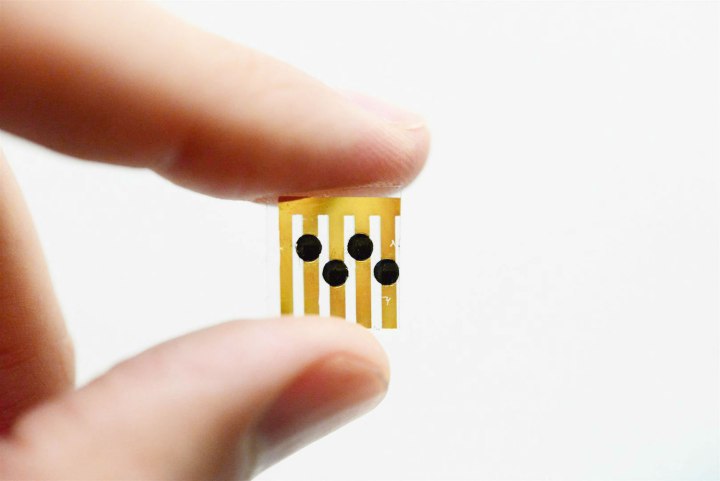
Developed by C2Sense, the technology behind the “artificial nose” allows sensors to detect ethylene, an odorous gas that is released naturally as produce ripens. The more ethylene a fruit gives off, the more quickly it ripens, which means that the process from ripe to spoiled is expedited exponentially. Etheylene sensors aren’t new in and of themselves, and until now they have worked in largely the same way a home carbon monoxide detector or smoke alarm does. C2Sense’s ethylene detector technology is the first that is inexpensive enough to see a future in the mass market.
A chemical reaction takes place within an electric circuit in C2Sense’s affordable sensor, so that as ethylene molecules increase in number throughout the ripening process, the electrical current in the sensor is interrupted and the change in conductivity can be measured. Once the sensors are ready for mass production, they will become a part of the overall food process that the western world so often takes for granted. Wholesalers will be able to stock produce packaged with C2Sense chip labels, and will be able to manage the sale of fruits and vegetables at peak ripeness. Customers will be able to scan produce labels for ripeness from a simple smart phone app. Even restaurant owners and chefs will be able to manage food storage to make the most of their kitchen resources before food goes bad.
C2Sense is the startup behind the artificial nose, but the science originally came out of MIT and research conducted by chemistry PhD candidate Jan Schnorr. In October, C2Sense was granted $350,000 in research funds from Breakout Labs, a philanthropic organization that aims to support scientists in transitioning from lab research to commercial endeavors. Ultimately, Schnorr and C2Sense hope to use the artificial nose technology to create sensor chips so small and affordable that they could be embedded in food packaging or built into grocery store produce bags.
Further applications of the C2Sense technology are already in development to detect gases other than ethylene, including ammonia and the amines released by meat products. C2Sense estimates that global food waste has a direct economic cost of $750 billion per year. The ethylene sensing system they have developed into their artificial nose technology could seriously curtail the social, political, and economic problems that threaten the world’s population thanks to wasted food around the globe.


